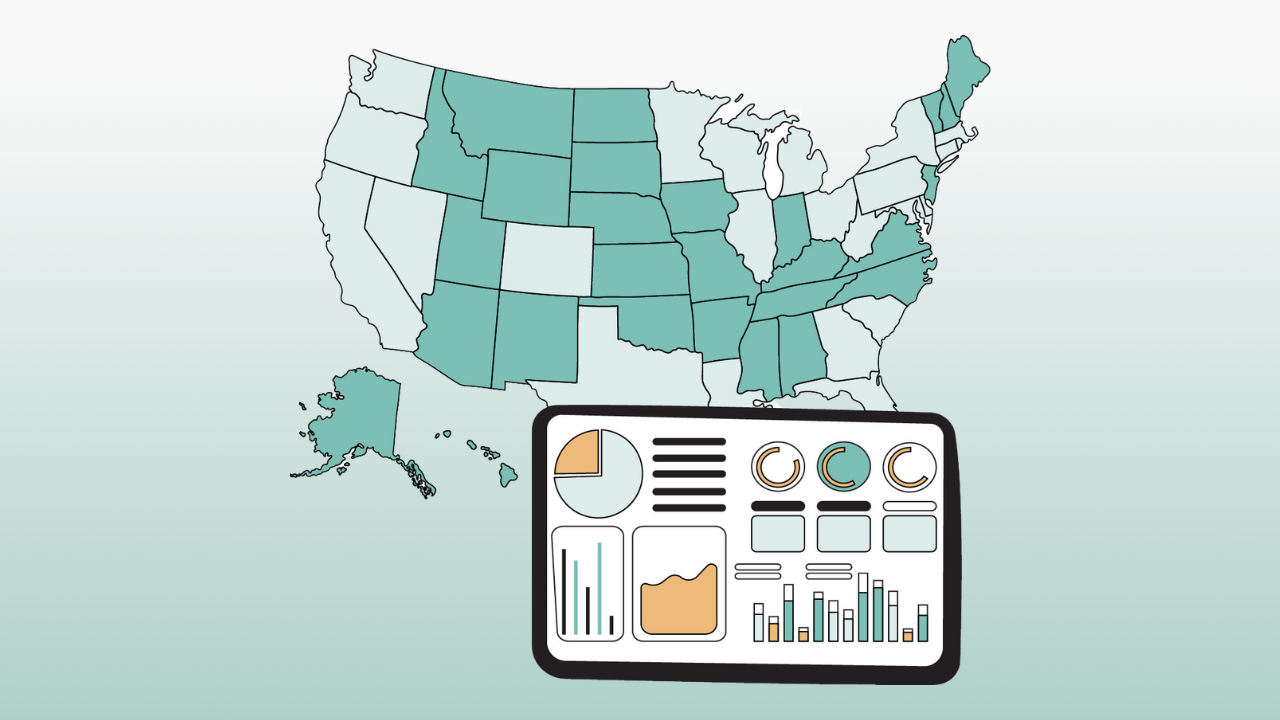Determining nexus for your business can be pretty confusing — even if you are running a physical store down the street.
But for businesses that transact in multiple locations, such as eCommerce stores, determining nexus can be complex — you may be tempted to open your wallets for a seasoned ecommerce accountant.
But hang in there.
By the end of this blog post, you’ll understand how to determine nexus for an eCommerce business in 2024.
What is Nexus?
In the U.S. tax code, nexus means having a meaningful business connection to a tax jurisdiction, usually a state: California, Texas, you name it.
This business connection — or nexus — will determine whether you’ll collect sales tax and, if yes, — at what rate.
But that’s not all.
Determining nexus will also help you know where to file and remit the sales tax you’ve collected.
Remember that since sales tax is often the primary source of revenue in several states, tax authorities are usually keen to ensure that businesses comply with nexus requirements.
If you don’t determine your nexus correctly, you may not collect sales tax from your clients. Alternatively, you may fail to collect the correct amount.
When this is discovered, you’ll have to pay all the sales tax you were supposed to collect from your pocket — plus, of course, penalties and interest for failure to file and pay sales tax.
Now that you know what nexus means and why it’s important, let’s dive into the factors that often create a sales tax nexus.
The Factors That Will Determine If You Have Sales Tax Nexus
The factors determining if your business has nexus (and hence, specific obligations regarding sales tax) depend on the particular state you’re considering. Each state has its own set of rules.
That said, the following are the factors most states consider in determining nexus.
Physical Presence
A sales tax nexus can be created if you have some physical business connection to a particular state.
And make no mistake. While physical presence often takes the shape of a downtown office or warehouse, it can also include temporary presence such as a trade show or business fair.
Physical connection implies you have a sales tax nexus where you’re physically located and, hence, should collect sales tax from all the sales you make in that state.
Economic Presence
Your business connection to a state may be economic — not physical. The Tax code calls this kind of connection “Economic nexus.”
Economic nexus arises if your business’s financial transactions in a state are above a stipulated value or volume.
So long as your business has met the value or volume threshold regarding sales in a specific state, it must collect the associated sales tax. It doesn’t matter if it has a physical store in that state.
This means that a business based in Texas, for instance, and with no physical presence in California, may have California sales tax obligations if the volume of transactions it does with California is above a specified threshold.
As to threshold, several states consider a business to have economic nexus when its number of sales transactions is at least 200 — or if it earns at least $100,000 as annual revenue.
Still, there are other factors to consider in determining nexus other than physical or economic connections.
Other Factors That Will Determine If You Have Sales Tax Nexus
Nexus can also arise in the following situations—
- Affiliates: This refers to a third party who sends referrals to your business.
- Personnel: This refers to employees, contractors (with some exceptions), and salespersons.
- Dropshipping: These are arrangements where your business has entities that ship your products directly to clients.
Then again, it’s crucial to remember that sales tax nexus can be origin-based or destination-based, depending on tax regulations in a particular state. Some states require an origin-based sales tax — while others stipulate a destination-based sales tax.
- Origin-based sales tax: This is where the tax rate you apply to the sale is the local rate where your business is located.
- Destination-based sales tax: This is where you use the local sales tax rate where the buyer is located — or where the goods are destined.
Examples of Sales Tax Nexus In Various States
The following are examples of states that prefer origin-based sales tax.
- Arizona
- California
- Illinois
- Mississippi, and
- Missouri
On the flip side, the following are examples of states that prefer destination-based sales tax.
- Maryland
- Massachusetts
- Michigan
- Minnesota
- Nebraska
- Nevada
- New Jersey
- New York
Generally, most states prefer a destination-based sales tax.
Regarding nexus, particularly economic nexus, the adoption is nearly total. The rule of thumb is that if a state has a sales tax — it has economic nexus.
Why Nexus Is Important In eCommerce
If you have a business on Shopify, for instance, or any other eCommerce platform, a correct understanding of nexus can be life-saving.
For starters, thanks to economic nexus, you’ll realize that your physical business location may not matter much when it comes to collecting sales tax. If the sales to a particular state have hit the specified threshold, which in most cases is $200,000, you’ll need to file tax returns according to the rules and requirements of that state — and remit the tax when due.
As to which rate to use, remember most states prescribe a destination-based rate. But you’ll still need to confirm because states such as Arizona stipulate an origin-based rate.
Then again, some states have sales tax systems that combine elements of both. Virginia, for instance, prescribes origin-based rates for sales within the state — and destination-based rates for out-of-state sales.
And when it comes to marketplace sales, meaning sales that take place through an online platform, the rules are even more complex and require a state-by-state consideration.
To make things a bit easier, however, some states, such as Texas, permit remote sellers, including eCommerce stores, to use a single state-wide rate — instead of the tax rate at the specific destination address. Texas often publishes its single-use tax rate in the Texas Register at the beginning of each year.
Still, nexus rules can be pretty complex. If you feel you can do with some professional help, don’t hesitate to contact us. We have many years of experience handling this kind of stuff and we’re always here to help.






